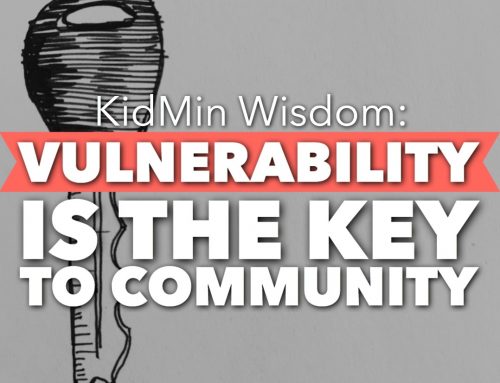Last week I suggested that it might be to a parent’s — and child’s — benefit to argue. BUT, it must be conducted under certain parameters that allow parents to lead with wisdom and remain in authority.
May I Make An Appeal?
About 15 years ago, I observed an interaction between a six-year-old child and their parent that positively changed the way I would come to view parenting.
I was a guest at the house of some friends. It was time for their small children to go to bed. Michael, age six, was so bummed that he had to “quit all the fun and go to bed.”
The direction was clear, “Michael is time to go upstairs and go to bed.” Michael was part way up the stairs when he stopped, nearly pouted, composed himself and stated these fateful words that changed the way that I would view parenting: “Dad, may I make an appeal?”
His dad responded simply, "Thank you, Michael, for the way that you asked. No you cannot make an appeal this time. Thank you again, it’s time for bed.” Michael turned, and made his way up the stairs, clearly disappointed, but no fight ensued.
How it Works
I was blown away. What had just happened? What was this “appeal process” that I just observed? A five-year-old had just respectfully asked to overturn his father’s decision. I was amazed. Mark, Michael’s dad was a towering 6’8” with a deep, masculine voice. Yet his six-year-old son did not seem the least bit intimidated to respectfully ask if he could challenge the decision his dad had laid down.
I asked Mark, “What in the world is ‘the appeal’ and how does this work?!” Mark carefully laid out for me a plan that he and his wife had concocted. He wanted his children to have the ability to respectfully challenge any decision, free of emotion, free of whining and free of disrespect.
His children had the ability to ask “can I make an appeal?” and on some occasions, an opportunity for an appeal was granted. At this point, his kids could lay out their rationale for why they felt that the parents should reconsider the decision at hand.
Decisions Overturned?
I asked Mark if he ever granted any of the appeals that have been made by his kids, appeals intended to overturn his decisions. Mark eagerly shared, “Absolutely! Sometimes they have a good point. I want them to understand that a respectful and well thought through rationale has a chance of being honored! They will go through life with jobs and bosses and they are going to need to know how to challenge a decision in a way that honors God. Plus, I don’t always see things clearly as their dad.”
He led with wisdom, humility and honor, yet his authority was clearly intact, authority that was appreciated by his children.
This process seemed so honoring to the budding intellect of his child. He gave them a chance to learn the art of respectfully asking someone in authority to reconsider their decision, based on your non-emotive input. Wow.
Making an Appeal — Kids Perspective
I stayed in contact with this family over the years. Their two children, Michael and Jin are dynamic young Christians with a heart of leadership and an extreme respect for authority. They are successful young adults that I deeply respect. I recently asked them to reflect back on what he “appeal process” meant for them as children, pre-teens and teens in their home.
Michael, age 21
Well, they taught me the best way to get a point across when doing something you don't want to do is to make "The Appeal". The appeal gives kids the ability to protest a parent’s decision/command with respect. Whenever I made an appeal I was supposed to have a logical reason to my protest. If my parents agreed, or sometimes even when they didn't, they honored the appeal by granting it because I showed respect even when I didn't want to follow their command. Looking back, I think it was a great way to learn respect, also about the importance of having good logical reasoning behind why I didn't want to do something. I still think about that when interacting with figures of authority, I still use it sometimes. It's something that carries very well into adulthood.
Jin, age 20
I loved being able to "appeal" to my parents. It gave me a chance to do things that I wouldn't normally be able to do. It's a good way to approach your parents if you want to be able to extend curfew, have friends over, or do something that you aren't normally allowed to do (especially for bedtime!). Instead of whining or complaining about something, the "appeal" approach was a more beneficial way of asking my parents. There are so many things you can do with an "appeal" for kids. It taught me that if I respect them enough to politely "appeal" for something than I would reap the benefits. I loved having this option once in a while! I will definitely provide it to my kids someday!
My wife and I have implemented this process of “the appeal” with our kids. Stay tuned for how it played out in our home…
I Want My Kids To Argue — Part 1
If you are eager to learn more about the concept of teaching your kids to argue, with all the content in one place, sign up here for my free ebook “I Want My Kids to Argue.”





